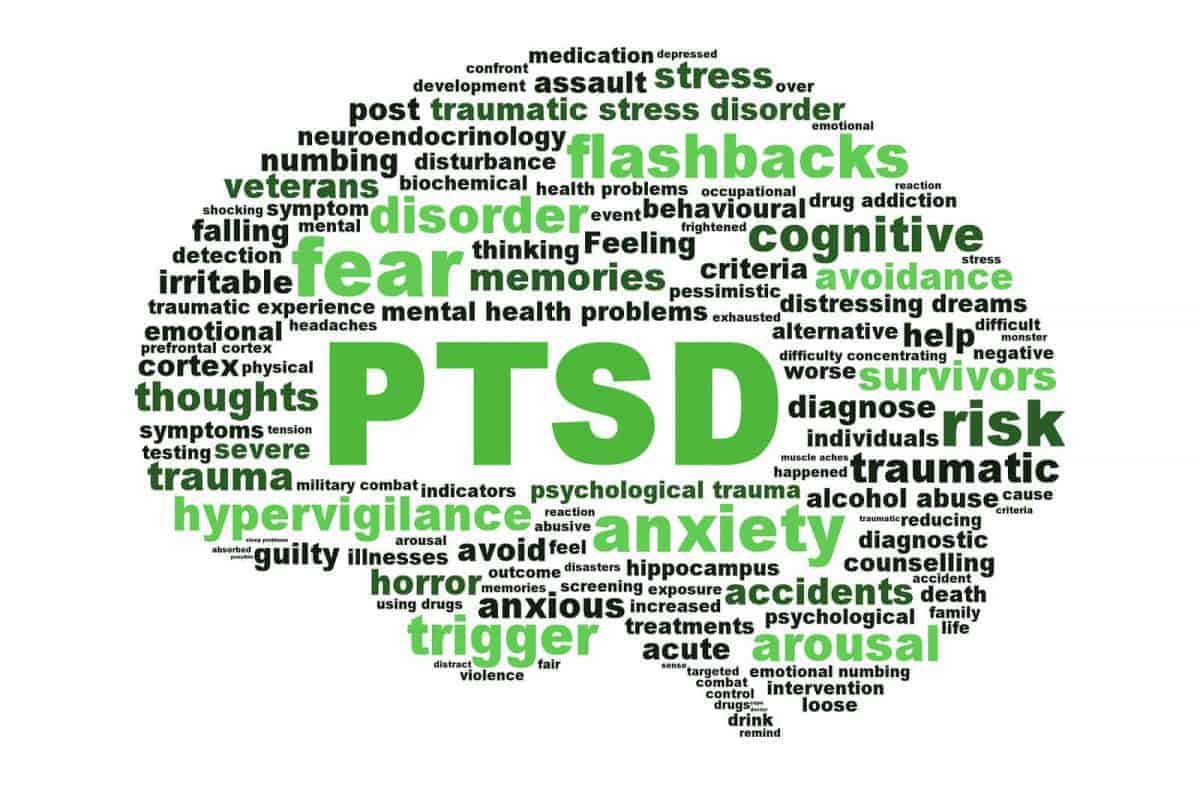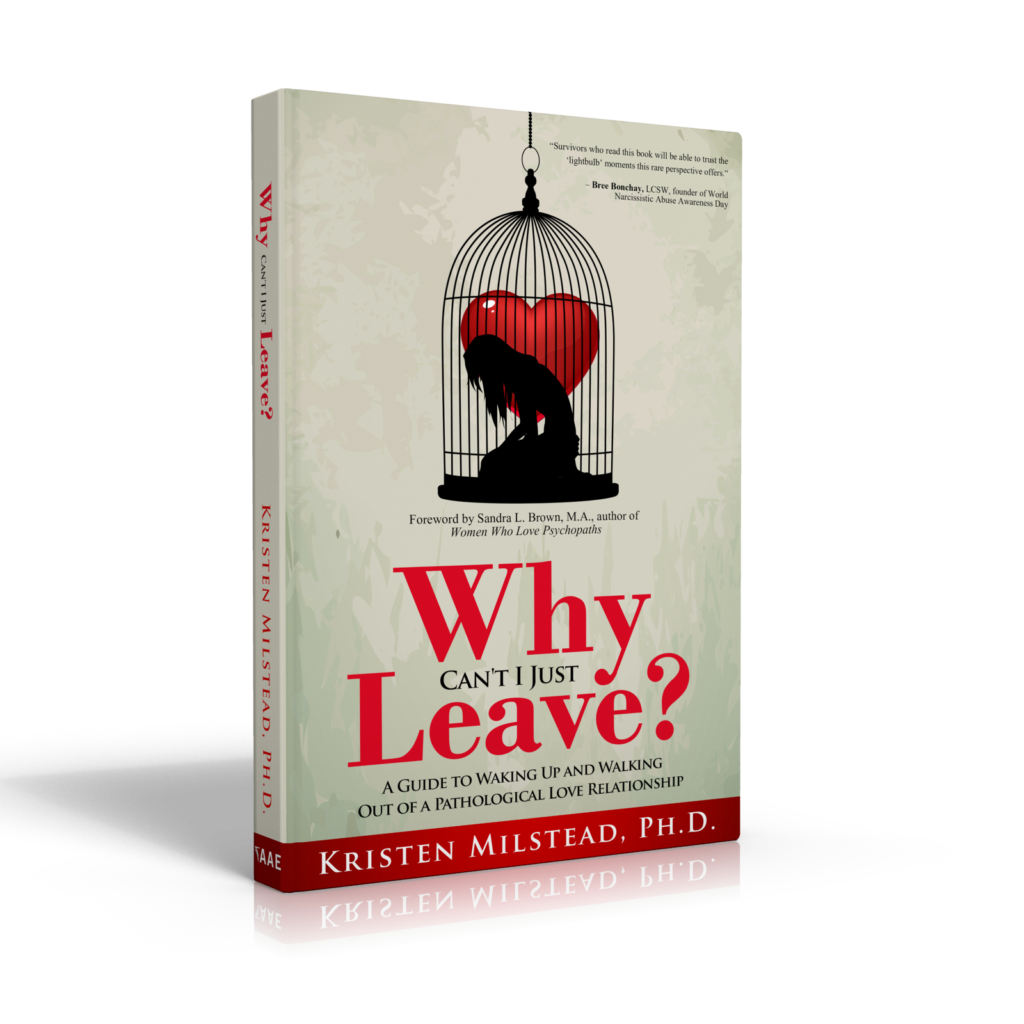PTSD and narcissistic abuse can go hand-in-hand.
“Normal relationships don’t give people PTSD.”
That’s what my therapist had said to me when I expressed my frustration over why I was having so much trouble dealing with the world, despite the fact that I wasn’t interacting with my ex-boyfriend anymore.
That’s when I realized just how truly pathological this situation had been.
I hated how I had changed without even realizing it, how I wasn’t my easygoing self anymore. I hated how angry I could get over the things that had been done to me. I hated how triggering certain things could be for me.
Mostly, I hated the nightmares I had at night.
Sometimes they were so physical– people coming out of walls and beating me with baseball bats, spiders crawling all over me– and I woke up screaming sometimes, for the first time in my life.
Once I dreamed of nuclear war, and the explosion rocked me with such intensity, my body shook in my sleep. I woke up crying, staring at the ceiling, unable to move for almost an hour.
But sometimes the dreams were more akin to real life– dreams of betrayal and lost love.
Occasionally, I dreamed he was hunting me. Other times I dreamed he was protecting me. But he was there.
God, when would he ever go away?
And that was just when I was asleep.
[Read: Going No-Contact When You’re the Victim of a Narcissist Discard]
The thing that’s hard about having PTSD or Complex-PTSD is that it leads to an unpredictable life.
This battlefield inside of me has been raging for years now. It has quieted, but some of the symptoms remain.
On some days, there is a residue of that tense something is not right feeling that does not want to leave me.
No one in my life understands the relationships between PTSD and narcissistic abuse. I don’t entirely understand the science behind the biochemistry, but I feel it in my everyday life.
Five PTSD Trauma Symptoms Caused by Narcissistic Abuse
1. A Whole Lot of Anxiety
The primary emotion that I deal with is anxiety.
Often, it is an omnipresent feeling that needs almost nothing to trigger it.
During the time I was with my narcissistic ex, my fight-or-flight mode was permanently tripped off the chain and I have just begun to get that under control.
My body became so used to feeling on edge, ready for some kind of attack or betrayal, never knowing when it would come, waiting to be ground down. It’s still there to a degree and I wonder when it will leave, although it’s much better now.
I now perceive my life through a filter that I don’t know how to let go of. The anxiety can be made worse at any given time by anything, internal or external. An unwanted thought. Something someone says.
I read things into what people say and do without wanting to or meaning to. Then I have to talk myself down from it and put sense back into myself again, remind myself that filter is there– and I’m left trying to figure out whether someone is really being a jerk to me or if I was being too sensitive.
After years of being told I couldn’t trust myself on that by my ex-boyfriend, now I really can’t.
I’ve got some strategies for that now and I’m getting myself back, but it’s been a long road.
2. Intrusive Thoughts and Emotional Flashbacks
My ex-boyfriend put many poisonous words into my ears over the years, things about how no one would ever love me like he did or at all and about how I was a “this” or a “that” because of random things that set him off.
These actions that set him off were just things I was doing while I lived my everyday life in a way most people go about doing, but he didn’t like that because they threatened him. He slowly narrowed the range of what was “acceptable” so he could feel more secure and in control by belittling and degrading me.
Associating what felt like the greatest love of your life with someone who intentionally tried to hurt you with cruel words takes time to sort through.
The pain extends beyond normal breakup emotions. It includes being lost in a confusing swirl of memories where your version of events was consistently challenged.
My brain is constantly trying to sort it all out to make some kind of sense out of it all. If something happens that reminds me of any of that conflict in his behavior while the relationship was ongoing, I can get emotionally triggered for hours.
The emotional fallout can look anything like a panic attack to unexpected crying to becoming irritated by something that seems innocuous. Then I have to talk myself down or soothe myself out of that too.
3. Tearfulness
Speaking of crying, I can cry at the drop of a hat. About anything. The tears are always right on the surface as if they need an occasional release. Strong emotion of any sort can bring them forward for a few minutes.
I was told for so long that whatever emotion I was having was the wrong one or that I wasn’t allowed to have an emotional reaction to horrible things that were happening around me, that even now, my tears usually lead to guilt, shame, or more anxiety.
4. Reactions to Events Are Sometimes Out of Whack
I can be easily triggered both because of the anxiety I’m always feeling and near-constant “fight-or-flight” mode I’m living in. However, I’m not always this way. Sometimes I just go numb.
The spigot only seems to have two settings: on or off. If everything feels threatening, sometimes I just shut down because I’m exhausted.
It may seem as if I’ve gone the other way and I’m not acting as if I care enough.
Or it may seem as if my boundaries are too strong or too weak– either I’m not letting anyone near or letting someone walk all over me and not making my own needs known.
I can’t figure out anymore how to interact with people. My boundaries were eroded so slowly, I don’t even know where they went or how to get them back.
5. Trouble Concentrating or Forgetfulness
So much of my mental focus is taken up by just managing anxiety and dealing with the intrusive thoughts that it’s difficult to have the energy left to sift through vast amounts of other information, to perform basic tasks, or even focus on a conversation.
I’m easily distracted and have difficulty processing information in new situations. It has hampered my ability to communicate effectively both because I’m unable to find words or have to ask someone to repeat something. It’s also affected my self-esteem; I know I come off as not that bright or interesting.
This last effect is the worst for me. The sheer amount of mental and emotional energy it takes to carry out normal activities and to heal from all of this at the same time often leaves me falling short, and adds to the emotional burden.
What I Wish People Understood about PTSD and Narcissistic Abuse
There are a lot of things I wish people understood about the trauma of narcissistic abuse.
Mostly, I wish they understood how I can’t find words to explain anything, the big things or the small things.
Words are strange things for me these days. Sometimes the word that comes out of my mouth sounded like the one I wanted to use but isn’t quite right.
Other times, I will be in the middle of a conversation with someone, and everything will be fine. Suddenly, the word I wanted as I was speaking just… isn’t there. In my mind. I mean, it won’t come to me so I can’t say it out loud.
It’s like having your train of thought suddenly careen off the track and right in front of you is nothing. Not one word will come to my mind.
There’s a white, blank wall as if my mind is blocking me from picturing words at all.
And as I’m trying to remember what word I was trying to use next, I can see the person I’m talking to waiting patiently for me to finish my sentence.
The longer they wait, the bigger the blank wall gets. I’m suddenly certain the word isn’t going to come, but still I fumble over what I was trying to say.
[Read “The 5 Stages of No Contact with a Narcissist“]
I can feel myself wishing the conversation would suddenly just end. I back up a few words and hope the word I’m looking for will come to me. I search my brain for a similar word, something that will substitute for what I’m trying to say.
But no. There’s nothing. So instead, I just push past it, as if I’m interrupting myself and moving onto my next related thought.
I’ll nod as if what is saying is so obvious, I don’t even need to finish my sentence. By then, however, my thoughts are too jumbled and even though I know exactly what I would like to say—the perfectly formed idea, the brilliantly developed connected made between our thoughts gone.
I let our conversation die shortly after.
This is the mental fog I carry around, thanks to C-PTSD.
It’s much better than the fog I carried around when I was in the relationship due to cognitive dissonance and the effects of the psychological abuse, but this fog remains.
Some days it’s better than others. When I’m especially tired, I can’t really carry on much of a conversation at all. Even though I can think complete thoughts, putting them into words doesn’t go very well.
One day, I have hope that I can fill my brain with all the words I know again and they will flow out of me the way that they used to.
I want to say to people that I am not unintelligent, that I can carry on conversations, that my brain works, that I have thoughts and ideas and they are in there. I just can’t get everything out at that particular moment.
I want to tell them about the things that have happened and how far I’ve already come.
But I don’t.






8 Comments
Anonymous
Hi Kristen,
I’ve read your blogs extensively and they’ve helped me so much in my understanding and recovery. You’ve put into words the emotions and thoughts I experienced but was never able to articulate to myself much less other people. There was just so much confusion in my head about the relationship! Thank you so much for your light (both literally and figuratively). I wish you all the best things that life has to offer.
Kristen Milstead
Thank you so much! I genuinely appreciate the well wishes. I am honored to know that my words have been helpful to you in your own recovery. Stay strong! -Kristen
Katie
Hi Christine
I’ve just read your article on some of the many effects of PTSD and reread the section you wrote about your frustrations in regard to your use and retrieval of YOUR language competencies. I write ‘your’ in capitals as it is, I believe the key to further examining and explaining why this occurs – to many with PTSD effects caused through narcissistic abuse.
Within such a relationship (- the term is almost an oxymoron as it’s more a controlled entrapment), the person being abused, generally ‘loses their voice’ both externally when trying to communicate to their abuser and internally when trying to analyse, explain, rationalize the bizarre behavior and verbal onslaughts to themselves.
I believe that over a period of time, our ability to use language, becomes conditioned to be silent so as to protect ourselves – and in so doing helps to create that ‘fog’ of cognitive dissonance as we continue to try and deny and/or rationalize why the abuser is abusing us. As you stated, the fog for you now, is not as bad – because you finally saw the reality of the abuse for what it was. It is since then that YOUR voice has begun its healing process and is flooding you with avenues to use it – both in written and verbal communications aimed at helping others. (thank goodness!!)
Focused meditation – taking a quiet time to practice saying something aloud that you want to say later to others, helps a great deal – almost like social inoculation – your practice prepares you emotionally and mentally.
The best healing through, comes through laughing again – by watching a comedy show, sharing or listening to jokes or listening to a podcast or TEDtalk that you know is going to be amusing – this floods the brain with endorphins and relaxes the muscles within the body – especially the throat which has over time been constricted by fear and stress through the period of abuse.
I hope this makes sense – I hope more that it may help others know THEIR voice will return with a renewed sense of purpose…and it will be not be so easily silenced again.
Diane Thompson Oare
This is by far the most diverse, detailed and best article that will explain in words somewhat the experience of loving a narcissist. It is easier to understand to someone with this trauma in their life, but explains things excellent! Thank you for such a different perspective!! I hope this comforts others knowing they are not crazy only to read they actually are human with normal emotions that and wonder how they got here. It’s seems like such a fatal blur! This has helped myself see things more clearly and understand what has been happening to me.
Seven Things I Wish People Understood About Living with the Effects of Trauma | In the Shadows of the Fairy Tale
[…] My mind wanders onto strange tangents depending on sounds, songs, people or places I’m exposed to or even thoughts I have and so I deal with it and then get back to my business at hand. An emotional response may feel incongruent, and then I need to get things back under control. Sometimes (given a situation I’m in right now that I can’t talk about) my emotional response is entirely appropriate after I bounce it off others later, but I still need to reign in my reaction because I know that my “self-protection” (read: “fight-or-flight” mode) is on overdrive and is at the breaking point. I’ve already written in detail about some of the effects. […]
Eleven Things That Can Happen in the Immediate Aftermath of No-Contact: What It's Like and How to Prepare | In the Shadows of the Fairy Tale
[…] may, in fact, be signs that you’ve been through trauma that may take a while to […]
Sarah
Hi Kristen. I’ve commented before on your blog – I’m still going through the process of trying to figure things out. I’m grateful for your continued entries. This one really hit home. I have struggled with the mental fog thing but I thought it was simply my ADHD, but when I think back, I don’t remember it being an issue as much as it was before my most recent relationship. Even though I was already aware on some level that trauma affects people in very profound ways, it is still devastating to think that someone I love so much has physically affected the way my body and brain functions…. with words. How can someone be so loving at times and then so cruel at other times? How can a person look another in the face and say “fuck off, I hate you” if they have any amount of love left for that person? I just can’t wrap my head around it.
Sarah
Hi Kristen. I’ve commented before on your blog – I’m still going through the process of trying to figure things out. I’m grateful for your continued entries. This one really hit home. I have struggled with the mental fog thing but I thought it was simply my ADHD, but when I think back, I don’t remember it being an issue as much as it was before my most recent relationship. Even though I was already aware on some level that trauma affects people in very profound ways, it is still devastating to think that someone I love so much has physically affected the way my body and brain functions…. with words. How can someone be so loving at times and then so cruel at other times? How can a person look another in the face and say “fuck off, I hate you” if they have any amount of love left for that person? I just can’t wrap my head around it.